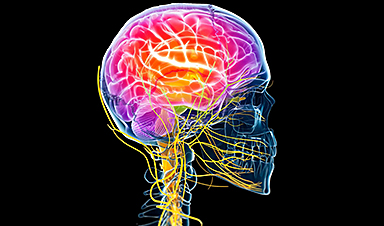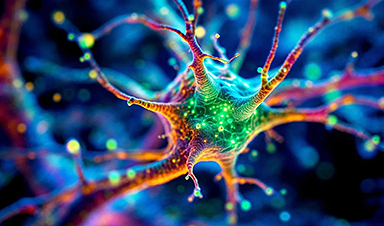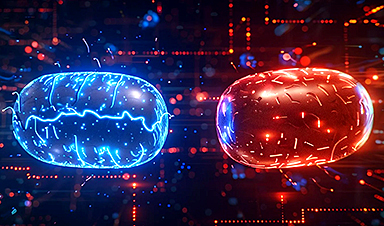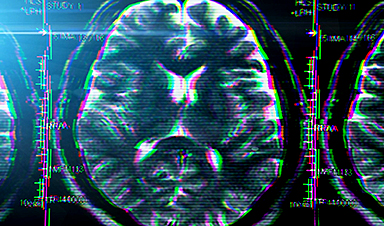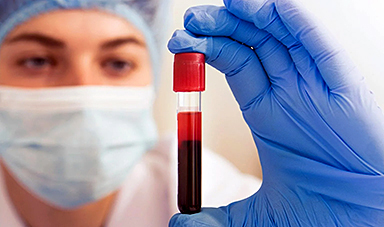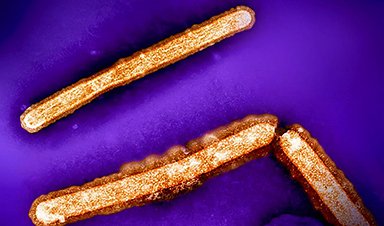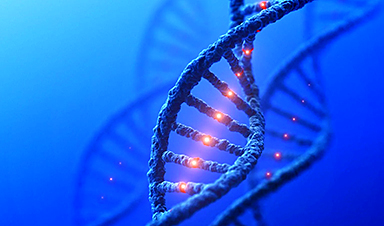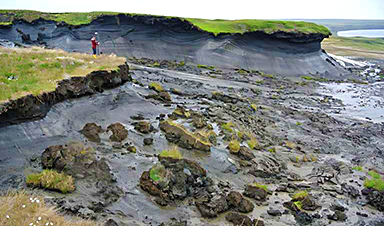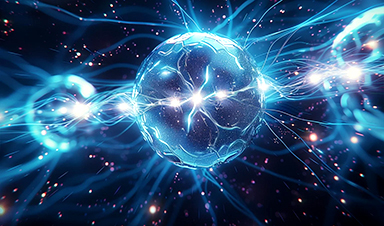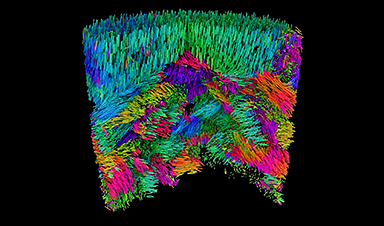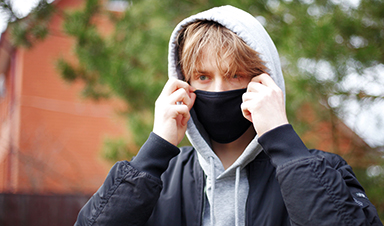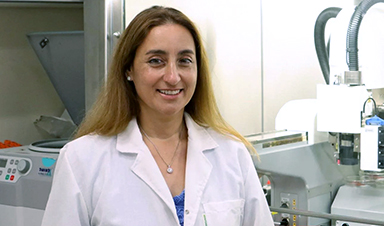TORONTO — Beth Pardo is an insurance executive, former marathon runner, and one of the first patients to come out with her diagnosis of functional neurological disorder, an issue that surfaced after she got vaccinated against COVID-19.
But the disorder isn’t a side effect of the vaccine — and as doctors work to understand and identify cases, they are also fighting against misinformation and conspiracy theories spreading online.
Functional neurological disorder (FND) is a complex, but common neurological condition. Often FND happens after trauma, stressful life events, injury or car accidents, with people developing neurological symptoms that have no physical cause.
In Pardo’s case, it started after her second COVID-19 shot in early July. Three days after getting the jab, she noticed her legs becoming more and more unsteady while out shopping.
“By the time I left the store that Sunday afternoon, I couldn’t walk,” she told CTV News.
“I was terrified. I didn’t know what was going on, I waited 24 hours and then I called my doctor, and she insisted I get to the ER right away.”
Video taken of her in hospital shows her wobbly, having difficulty walking.
She had many tests done, including blood work, CT scans and MRIS, all of which found nothing.
“Every scan came back perfectly clear,” she said.
Since vaccine rollouts began, videos have appeared on social media of people ascribing tremors, seizures and paralysis to their recent COVID-19 vaccination, while racking up thousands of views in the process.
But researchers in the U.S., Europe and now a study in Canada have confirmed that these are not adverse reactions to the vaccine, but rather manifestations of FND.
FND is a disorder where the issue is in the “functioning or ‘software’ of the nervous system rather than neurological damage, like a stroke, which would be like the ‘hardware’,” according to the Functional Neurological Disorder Society (FNDS).
So why is this happening after vaccination, if it’s not caused by the vaccine itself?
“FND is commonly triggered by minor physical injury or illnesses,” FNDS explained in an email to CTV News. “When people have a vaccine, of many types, they often have a sore arm, and can feel unwell. This is enough to trigger FND in someone who was previously well. It doesn’t mean that the vaccine has caused neurological damage. Other vaccines have also triggered FND in the past and we see it after people have blood tests or minor wrist sprains, for example.”
Diagnosing FND
After tests failed to explain what was happening to her, Pardo ended up in the office of neurologist Dr. Alfonso Fasano at the University Health Network who was finally able to diagnosis her as having FND.
One of the key details that aided in diagnosis was that while videos showed that Pardo was unsteady and having trouble walking, Fasano noticed that she could go down the stairs with relative ease — a physical inconsistency that is a hallmark of FND.
“We look for specific features, particularly the inconsistency. The symptoms come and go, they don’t have biological explanation according to what we know today of medicine,” Fasano explained.
With a functional brain disorder, there are no structural problems in the brain that could explain the symptoms a patient is experiencing. For clinicians who don’t know much about FND, it can be hard to diagnose. Fasano said this can exacerbate the problem.
Patients can present a variety of issues from the disorder including coma, seizures, tremors and problems with balance.
“There is a really variable manifestation of different problems,” Fasano said.
“And first thing is actually to tell the patient as soon as the diagnosis is formulated in the mind of the doctor, because sometimes the diagnosis is the treatment itself,” he added.
Since stress affects FND, going to so many physicians who can’t diagnosis you can only make the situation worse for patients.
“Receiving multiple diagnosis or even treatments sometimes doesn’t help — actually [it] makes things worse — because the patient gets into a vicious circle,” Fasano said. “And it’s difficult to get out if you wait too long.”
He explained that those who present with FND “have a predisposition where any medical interventions can trigger a number of problems.”
Because the news and social media has been full of discussions of vaccine side effects and concerns, “all these patients were already susceptible and at risk to develop these problems,” because they were extremely stressed about receiving the shot, he said.
“And sure enough, some of them developed new symptoms, which were in a way, triggered by the vaccination,” he said. “However, the vaccine itself has nothing to do with the problem itself.”
The distinction, Fasano said, is that there’s nothing inside the COVID-19 vaccine itself that causes neurological effects like this. FND symptoms result from a combination of factors such as existing stress, stress around the vaccine process, and the minor pain that comes with being vaccinated.
When Pardo first went to the hospital with her symptoms, she says there was the fear that it could be something far more serious, such as a stroke or multiple sclerosis.
“So the fact that this is something that treatable, that it is something that I am recovering from, I think more people need to hear that, that it is something that is just fixed,” Pardo said.
Pardo said that before she received her proper diagnosis, some doctors told her it was “biologically impossible for the vaccine to have triggered it,” while others told her it was definitely connected to the vaccine. Now that she knows more, she believes that spreading awareness that it is not an adverse reaction to the shot is crucial.
“It’s important to hear that, while the [shot] of the vaccine may have triggered it, it’s not the vaccine itself that did this to me,” she said.
Read more below…
News
According to Researchers, Your Breathing Patterns Could Hold the Key to Better Memory
Breathing synchronizes brain waves that support memory consolidation. A new study from Northwestern Medicine reports that, much like a conductor harmonizes various instruments in an orchestra to create a symphony, breathing synchronizes hippocampal brain waves to [...]
The Hidden Culprit Behind Alzheimer’s Revealed: Microglia Under the Microscope
Researchers at the CUNY Graduate Center have made a groundbreaking discovery in Alzheimer’s disease research, identifying a critical link between cellular stress in the brain and disease progression. Their study focuses on microglia, the brain’s immune [...]
“Mirror Bacteria” Warning: A New Kind of Life Could Pose a Global Threat
Mirror life, a concept involving synthetic organisms with reversed molecular structures, carries significant risks despite its potential for medical advancements. Experts warn that mirror bacteria could escape natural biological controls, potentially evolving to exploit [...]
Lingering Viral Fragments: The Hidden Cause of Long COVID
Long COVID, affecting 5-10% of COVID-19 patients, might be caused by the enduring presence of the virus in the body. Research suggests that viral fragments, possibly live, linger and lead to symptoms. Addressing this involves antiviral treatments, enhanced [...]
Hidden Scars: How COVID Lockdowns Altered Teen Brains Forever
Research from the University of Washington revealed that COVID-19 lockdowns led to accelerated cortical thinning in adolescents, impacting brain development significantly. This effect was more pronounced in females than males, raising concerns about long-term brain health. The study [...]
Simple Blood Test To Detect Dementia Before Symptoms Appear
UCLA researchers have identified placental growth factor (PlGF) as a potential blood biomarker for early detection of cognitive impairment and dementia. High PlGF levels correlate with increased vascular permeability, suggesting its role in the development [...]
Investing Goldman Sachs asks ‘Is curing patients a sustainable business model?’
Goldman Sachs analysts attempted to address a touchy subject for biotech companies, especially those involved in the pioneering “gene therapy” treatment: cures could be bad for business in the long run. “Is curing patients [...]
The risks of reversed chirality: Study highlights dangers of mirror organisms
A groundbreaking study evaluates the feasibility, risks, and ethical considerations of creating mirror bacteria with reversed chirality, highlighting potential threats to health and ecosystems. In a recent study published in Science, a team of researchers [...]
Alarming Mutation in H5N1 Virus Raises Pandemic Red Flags
NIH-funded study concludes that the risk of human infection remains low A recent study published in Science and funded by the National Institutes of Health (NIH) has found that a single alteration in a protein on the surface [...]
Scientists Discover Genetic Changes Linked to Autism, Schizophrenia
The Tbx1 gene influences brain volume and social behavior in autism and schizophrenia, with its deficiency linked to amygdala shrinkage and impaired social incentive evaluation. A study published in Molecular Psychiatry has linked changes in brain [...]
How much permafrost will melt this century, and where will its carbon go?
Among the many things global warming will be melting this century—sea ice, land glaciers and tourist businesses in seaside towns across the world—is permafrost. Lying underneath 15% of the northern hemisphere, permafrost consists of [...]
A Physics Discovery So Strange It’s Changing Quantum Theory
MIT physicists surprised to discover electrons in pentalayer graphene can exhibit fractional charge. New theoretical research from MIT physicists explains how it could work, suggesting that electron interactions in confined two-dimensional spaces lead to novel quantum states, [...]
Inside the Nano-Universe: New 3D X-Ray Imaging Transforms Material Science
A cutting-edge X-ray method reveals the 3D orientation of nanoscale material structures, offering fresh insights into their functionality. Researchers at the Swiss Light Source (SLS) have developed a groundbreaking technique called X-ray linear dichroic orientation tomography [...]
X-chromosome study reveals hidden genetic links to Alzheimer’s disease
Despite decades of research, the X-chromosome’s impact on Alzheimer’s was largely ignored until now. Explore how seven newly discovered genetic loci could revolutionize our understanding of the disease. Conventional investigations of the genetic contributors [...]
The Unresolved Puzzle of Long COVID: 30% of Young People Still Suffer After Two Years
A UCL study found that 70% of young people with long Covid recovered within 24 months, but recovery was less likely among older teenagers, females, and those from deprived backgrounds. Researchers emphasized the need [...]
Needle-Free: New Nano-Vaccine Effective Against All COVID-19 Variants
A new nano-vaccine developed by TAU and the University of Lisbon offers a needle-free, room-temperature-storable solution against COVID-19, targeting all key variants effectively. Professor Ronit Satchi-Fainaro’s lab at Tel Aviv University’s Faculty of Medical and [...]

